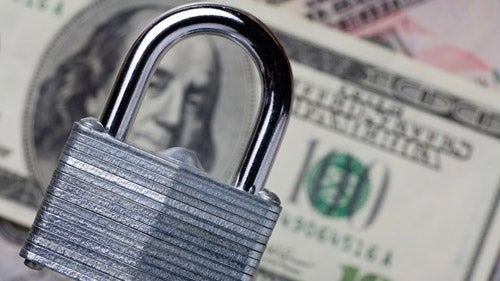
Cash is the lifeblood of business. You need it to pay your employees, yourself, and for the materials, equipment, and overhead items you need to keep the doors open.
Obviously, for your business to survive you must generate cash. However, even if you are showing a profit you may not have cash. This is the case when you do work, bill for your work, and don’t collect your money.
There is no sense in doing the work if you’re not collecting the cash for the work you do. That, from a business standpoint, is one of the most important things to do. But once you get the cash in the door, you must make sure you protect that cash from employee theft and other mismanagement. There are some simple and very easy things that you should do to make sure that you protect your hard earned cash.
There are many ways that you give employees the opportunity to take cash. This three part series gives you the procedures you need to put in place to protect your hard earned cash.
I’ve seen too many “loyal bookkeepers” who have been stealing a few dollars here and there for the past fifteen or twenty years. Over the long term, this really adds up to a lot of dollars—dollars that you have earned but are gone simply because you did not take the steps necessary to protect your cash. And you are shocked and hurt when the theft gets discovered. A very wise person once told me, the job of the good embezzler is to become the trusted bookkeeper.
Many of you wonder, how could I not know if someone is stealing? The answer is really very simple. You are so busy running the day-to-day operational issues, sending out bills, collecting the money, and not looking at the bank deposits. You don’t devote any attention to the cash management side of the company except for watching accounts receivable and accounts payable.
And you trust the people working for you. The theft may be small, $10 or maybe even $100 so that you might not notice it at all. But, over the long term it really adds up.
In this first of three parts, the most critical thing, and one of the easiest to do, is explained. In parts two and three I’ll give you other procedures, many of them very easy to put the checks and balances in place, so the hard earned cash that comes in the door, stays in the door until you are ready to release it to run your business or add it to your profit.
The most critical thing to do: send your bank statements home. This is the first line of defense. When you open the bank statement first, you see the checks, the names on the checks, and the signatures on the checks. You’ll know a lot and can ask questions. By sending the bank statements home, you’ll also find out who has bounced checks, loan payments that were late, etc.
No one can forge your name and remove the checks during the reconciliation of the bank statements. If you ask for the bank statements, the forged checks won’t be there—and you probably won’t think about it since most of the time you don’t get all of the checks back.
Finally, I’ve seen vendors change the amounts of checks before they cash them. In one case, a $49 check became a $449 check before it was cashed. If a check doesn’t seem right to you, question it and pull the back up invoice.
Call your bank today and have your bank statements sent home. It truly is the first line of defense in keeping the honest people honest.
The next segment gives you more easy things to do to protect your cash.
Published: May 14, 2013
2903 Views
2903 Views












